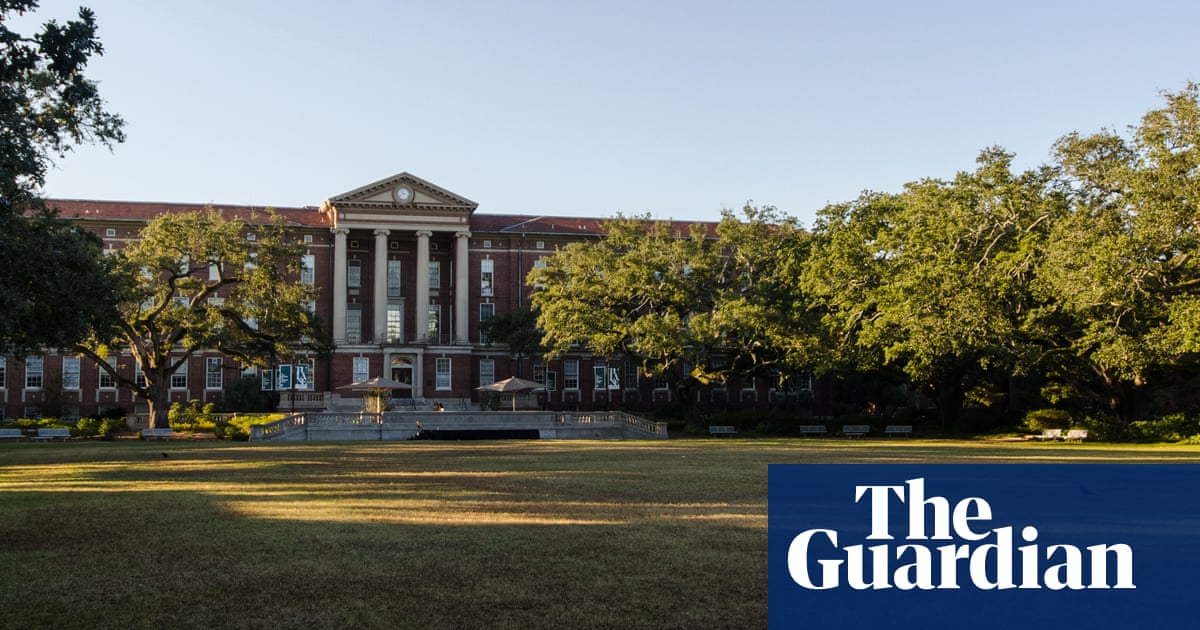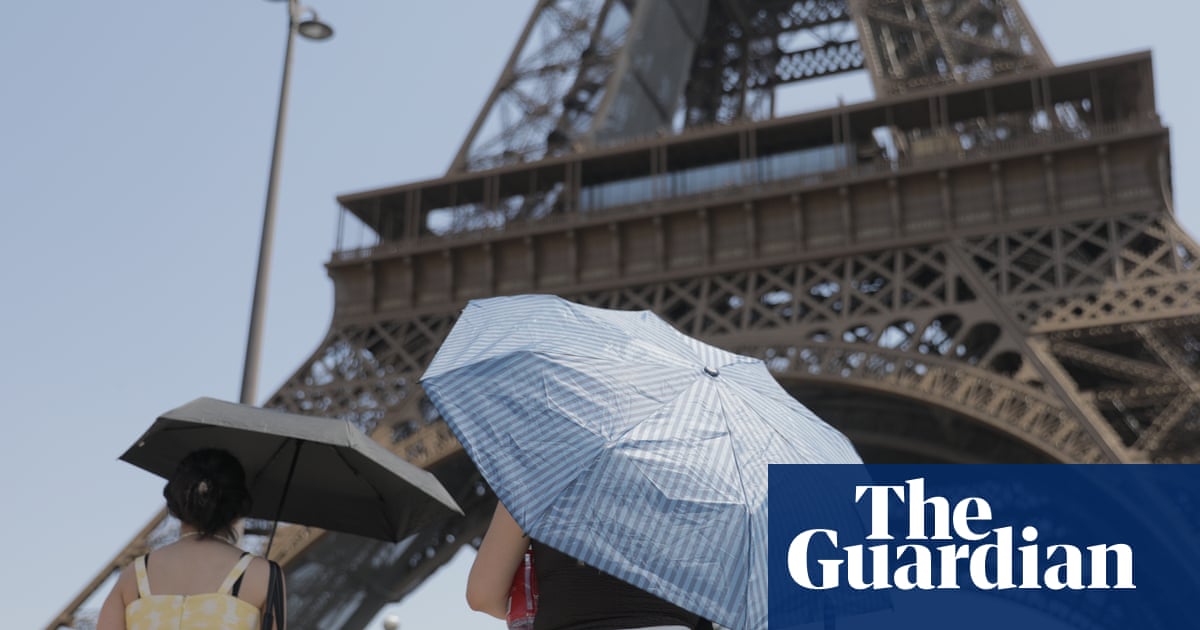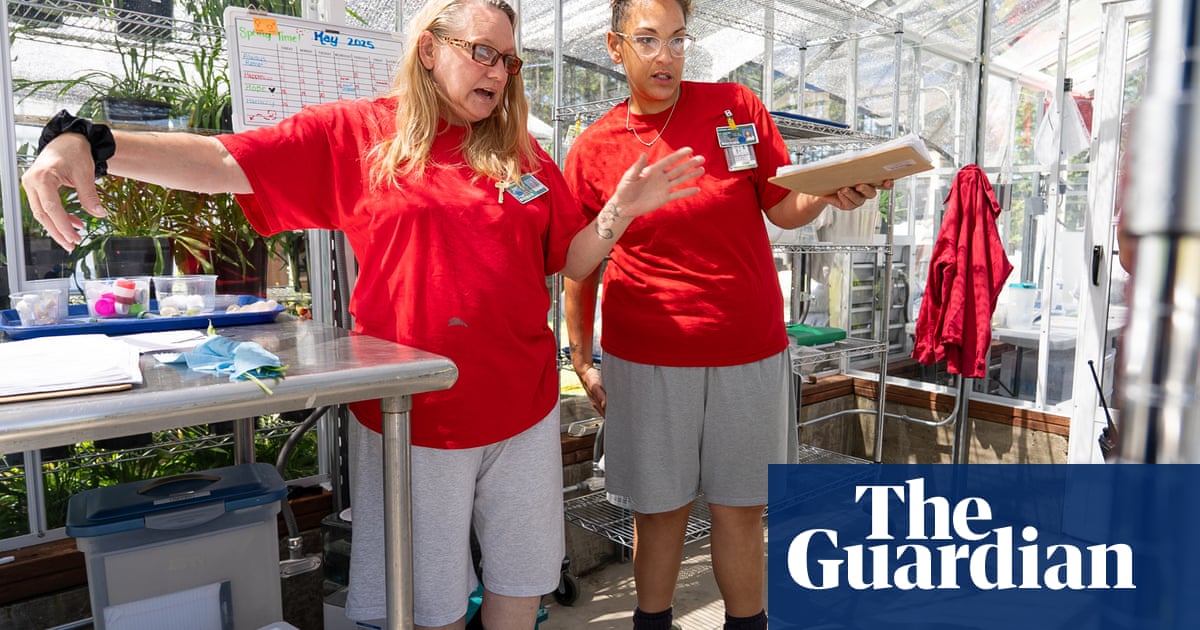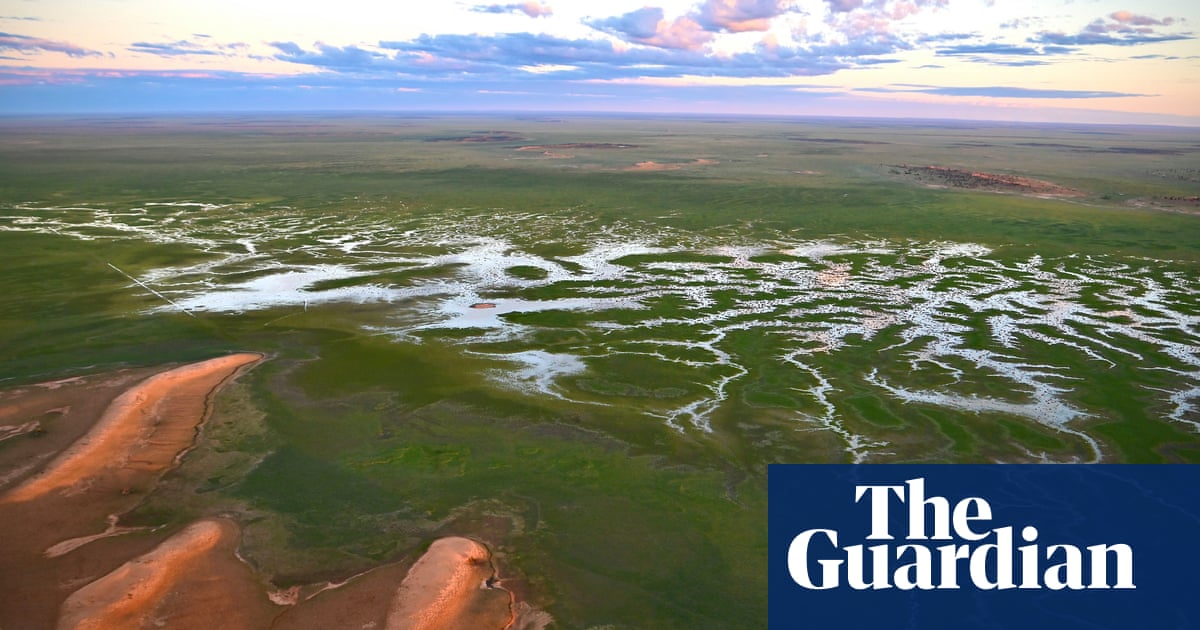Tulane University scientist resigns citing environmental censorship | Louisiana

Environmental advocates are questioning the actions of a private university in Louisiana after the resignation of a scientist who researches the health and job disparities in a heavily industrialized part of the state known as Cancer Alley.
Kimberly Terrell served as a director of community engagement and a staff scientist with Tulane University’s Environmental Law Clinic before resigning and accused university leaders of trying to censor the work she is doing to spotlight the harms to local communities plagued by industrial pollution.
Terrell said her research in collaboration with Floodlight highlighting job disparities in hiring at local petrochemical facilities triggered a backlash from state and Tulane leaders. That led to Terrell being put under an “‘unprecedented gag order” by the dean of the university’s law school, she said in a prepared statement issued by a group calling itself the Louisiana Alliance to Defend Democracy.
Terrell resigned on Wednesday from the New Orleans-based university, saying she would rather leave her position than have her work used as a pretext “to dismantle” the law clinic.
“After being affiliated with Tulane for 25 years and leading groundbreaking research at [the law clinic] for seven years, I cannot remain silent as this university sacrifices academic integrity for political appeasement and pet projects,” Terrell wrote in a letter to her colleagues.
On Thursday, a university spokesperson said Tulane was “fully committed to academic freedom” and “the strong pedagogical value of law clinics”. Tulane declined to comment on Terrell’s resignation, calling it a personnel matter.
A spokesperson for Louisiana’s governor, Jeff Landry, said in an email that Landry never threatened to withhold state funding for the project. “However,” the spokesperson said, “I applaud Tulane for their actions standing up for our Louisiana businesses and jobs.”
Terrell’s resignation drew outrage from grassroots environmental advocates in the state who credited her with providing data and scientific research substantiating the harm from the petrochemical industry suffered by the predominantly Black communities in south-east Louisiana.
“We are frustrated that a person who is just doing their job, and doing it well shouldn’t be punished for it, she would be uplifted,” said Jo Banner, who co-founded a non-profit focused on community activism and cultural preservation in St John the Baptist parish, Louisiana.
Her twin sister and co-founder, Joy Banner, added: “This is an attack on her freedom of speech.”
A 25 April email provided to Floodlight from the Tulane Law School dean, Marcilynn Burke, states that “effective immediately all external communications” from the law clinic that were not “client based” would have to be approved by her. That communication included “press releases, interviews, videos, social media postings, etc”.
In another email, dated 4 May, Burke noted that the job disparity research was impeding the university from gaining political and financial support for its $600m downtown redevelopment project in New Orleans. The email said Tulane University’s president, Michael Fitts, was facing criticism from elected officials and potential donors of the public-private project unless the university’s leadership curtailed the work of its environmental law clinic.
“At present, the president is focused upon the role of the staff scientist,” Burke wrote. “He understands her role in supporting the clinic’s representation of the clients. Thus, I need an explanation of how the study about racial disparities relates directly to client representation.”
The email goes on to say, “He is concerned, however, that her work may go beyond supporting the clinic’s legal representation and veer into lobbying.”
Floodlight reported on the research Terrell led for the university in April 2024 while it was still undergoing peer review. Preliminary data showed that minorities were being “systematically” underrepresented in the US petrochemical workforce – despite promises that nearby communities would benefit from better job opportunities.
Terrell said the pollution v jobs narrative was oversimplified because the tradeoff affected different groups unevenly, with petrochemical jobs mostly going to white workers who don’t live in the predominantly Black and Hispanic neighborhoods that suffer most of the health impacts of that industry. That research and Floodlight’s reporting was recently featured in a documentary produced by The Years Project.
Nationally, Terrell’s research found that higher-paying jobs in the chemical manufacturing industry disproportionately went to more white people in Texas, Louisiana and Georgia – where minorities represent 59%, 41% and 49% of their respective states’ populations but held 38%, 21% and 28% of the better-paid jobs within the industry.
In the petroleum/coal industry, people of color were underrepresented in higher-paying jobs in at least 14 states – including Texas, California, Louisiana, Ohio, Pennsylvania and Illinois, the research found.
Terrell, in her letter to colleagues, said the gag order came after the research had been peer-reviewed and published online on 9 April in Ecological Economics.
Terrell said the research on job disparities had already been cited in legal arguments for student attorneys in the law clinic on behalf of clients from industrialized communities. And she said her 2022 study highlighting the health impacts in Cancer Alley ranked in the top 1% for research impact, garnering 28 citations and 87 news mentions to date, according to Almetric, which tracks the reach of research.
“Such impact would be celebrated by most institutions,” Terrell wrote. “Scholarly publications, not gag orders, are the currency of academia. There is always room for informed debate. But Tulane leaders have chosen to abandon the principles of knowledge, education, and the greater good in pursuit of their own narrow agenda.”
The Banner sisters are concerned Terrell’s departure and the university’s focus on restricting the work of the law clinic will probably make collaborations harder.
“They’re following their responsibility, they’re following the mission of the organization, and answering our call for help, and then now they’re getting slammed for it,” Joy Banner said. “No one has questioned her findings. No one has questioned her assumptions. The only thing that they have said is: the truth is creating problems for us.”
Floodlight is a non-profit newsroom that investigates the powers stalling climate action
Source link







